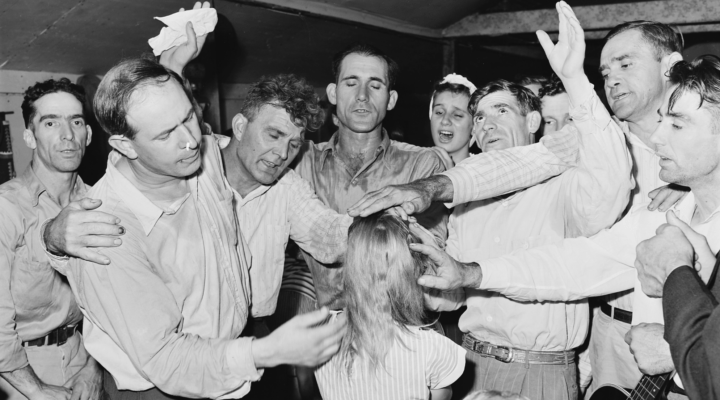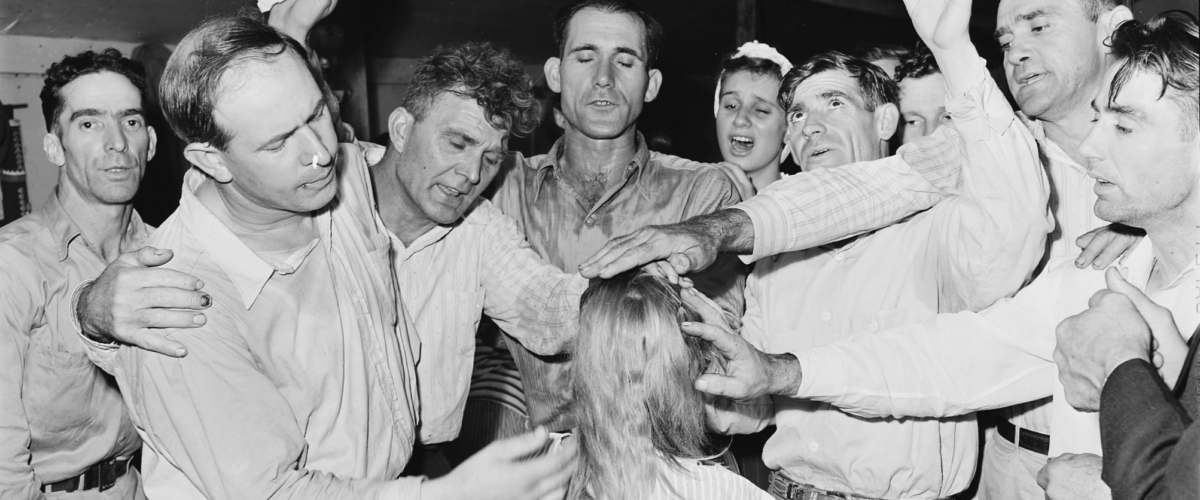While never gaining widespread acceptance in Baptist circles, the Holiness, Pentecostal and charismatic traditions have interacted with Baptists “more than we have imagined,” observed Baptist historian Doug Weaver.
“Baptists have been involved in both sides of the charismatic story — and still are,” Weaver said during the E. Glenn Hinson Lectures at Baptist Seminary of Kentucky on Monday, March 1. “It is part of the whole Baptist story. The Holy Spirit has not been a shy member of the Baptist Trinity, even if we often are not comfortable with how people have understood the mystery. “
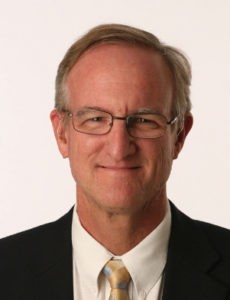
Doug Weaver
Weaver, a Baylor University professor and author of the 2019 book Baptists and the Holy Spirit, delivered two addresses on the theme, “So Baptists Want an Experience of the Holy Spirit.”The Hinson Lectures, an annual event hosted by the Georgetown, Ky.,-based school, were held virtually this year due to the COVID-19 pandemic.
The Holiness, Pentecostal and charismatic movements usually are associated with a post-conversion baptism of the Holy Spirit. Many adherents to these traditions practice speaking in tongues, faith healing and being slain in the Spirit, which happens when somebody is overcome with religious ecstasy and falls to the floor.
In the 19th century, A.J. Gordon, one of the namesakes of Gordon-Conwell Seminary, was a famous Baptist advocate for the Holiness movement, Weaver said. “He chided the inconsistency of fellow Baptists for their literal insistence upon New Testament believer’s baptism by immersion but their failure to practice the New Testament belief in healing. Gordon preached two religious experiences, conversion and a Spirit baptism of power.”
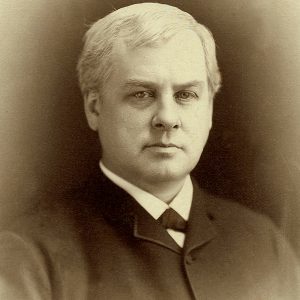
A.J. Gordon
Weaver said Gordon’s book Ministry of Healing was popular among Pentecostals for decades. “Gordon put off or scared many Baptists with his premillennialism, beliefs in healing and biblical inerrancy, but he was applauded for his missionary fervor,” he noted.
Another Gordon book, Ministry of the Spirit, was described by Weaver as a “Baptist best-seller.” It was quoted by prominent Baptist theologians E.Y. Mullins and Augustus Strong and enthusiastically endorsed by Texas Baptist leader B.H. Carroll.
Weaver also shared stories of 19th century Black Baptists who were drawn to the Holiness movement. They include Charles Price Jones and C.H. Mason, graduates of Arkansas Baptist College, who both eventually were forced out of Baptist life and founded denominations still in existence. Jones started the Church of Christ (Holiness), and Mason began the Church of God in Christ.
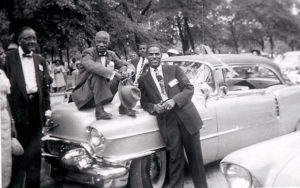
Bishop C.H. Mason seated on the hood of a Cadillac in an archival photo from the Church of God in Christ.
Jones, once pastor of Mt. Helm Baptist Church in Jackson, Miss., and Sister Mary Sweet, a preacher who for a time worked alongside Jones, were influenced by Joanna Moore, whom Weaver called a “beloved white Northern Baptist missionary.”
“Moore convinced both Jones and Sweet that they needed the power of the Holy Spirit for Christian living and ministry, and it was found in a post-conversion experience. The experience defined who they were.”
In the 1960s and ’70s, a “second wave” of charismatic renewal attracted some prominent Southern Baptists who were aligned with — but not necessarily emblematic of — leaders of the Southern Baptist “conservative resurgence,” Weaver said. Among them were James Robison, a vocational evangelist and a fierce critic of Southern Baptist seminary professors, and Jack Taylor, a popular Southern Baptist author during the 1970s who wrote about a Christian life that included both conversion and “experiencing the fullness of the Holy Spirit.”
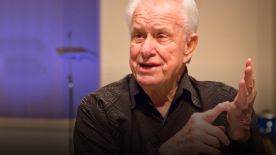
Jack Taylor
Yet their growing embrace of charismatic teachings brought an end to their relationship with SBC leaders. Weaver said Robison once lamented that his status among the denominational elite went from “prophet” to “cultist.”
In 1995, the Southern Baptist International Mission Board chose a president, Jerry Rankin, who acknowledged he spoke in tongues during his private prayers but who maintained he was not a charismatic. “His election seemed to show some cautious flexibility regarding private worship devotions,” Weaver said.
However, such tolerance did not extend to outward expressions of charismatic practices. Weaver recounted the story of a missionary couple in Singapore who were fired at the direction of Rankin after admitting to being slain in the Spirit.
Black Baptists also have had controversies related to charismatic practices, Weaver said. Yet he pointed out that a relatively new predominantly Black group, the Full Gospel Baptist Church Fellowship, is merging elements of both the Baptist and Pentecostal traditions to become “bapticostals.” Some congregations in the fellowship also hold membership in the historic Black Baptist denominations.
“Baptists have been born and bred on the ultimate importance of conversion.”
Baptists, Weaver stressed, have been “born and bred on the ultimate importance of conversion.” However, Baptists have not “rested comfortably in a transactional once-saved-always-saved conversion.”
“Maybe the transaction was the problem,” he speculated. “But the interplay of Baptists with the Holiness/Pentecostal/charismatic traditions demonstrates the pivotal role of experience in Baptist identity, even if experience has different connotations in light of class, race, gender and other factors for those involved.”
Among both traditional Baptists and those who practice a more charismatic version of the faith, there has been a yearning for “a direct experience with God the Spirit,” Weaver said. “Of course, most Baptists had trouble with the explicit, intense Spirit-led experience found among their more radical Spirit-baptized colleagues.”
Baptist history, Weaver emphasized, has had a focus on the “interplay” of experience, the Holy Spirit and Scripture. In Baptist debates about spiritual gifts, these elements were “woven into every aspect of these disputes, no matter the side of the dispute you were in.”
Among Christians worldwide, some observers estimate that 25% “claim a Pentecostal form of Christianity,” Weaver said. While noting he is “not a Pentecostal or a charismatic or the son of either,” he said Baptists should not ignore the trends of the world church.
Baptists, he said, “are going to get left behind if we do not learn from the interplay of word/Spirit/experience that is integral to Baptist DNA.”

